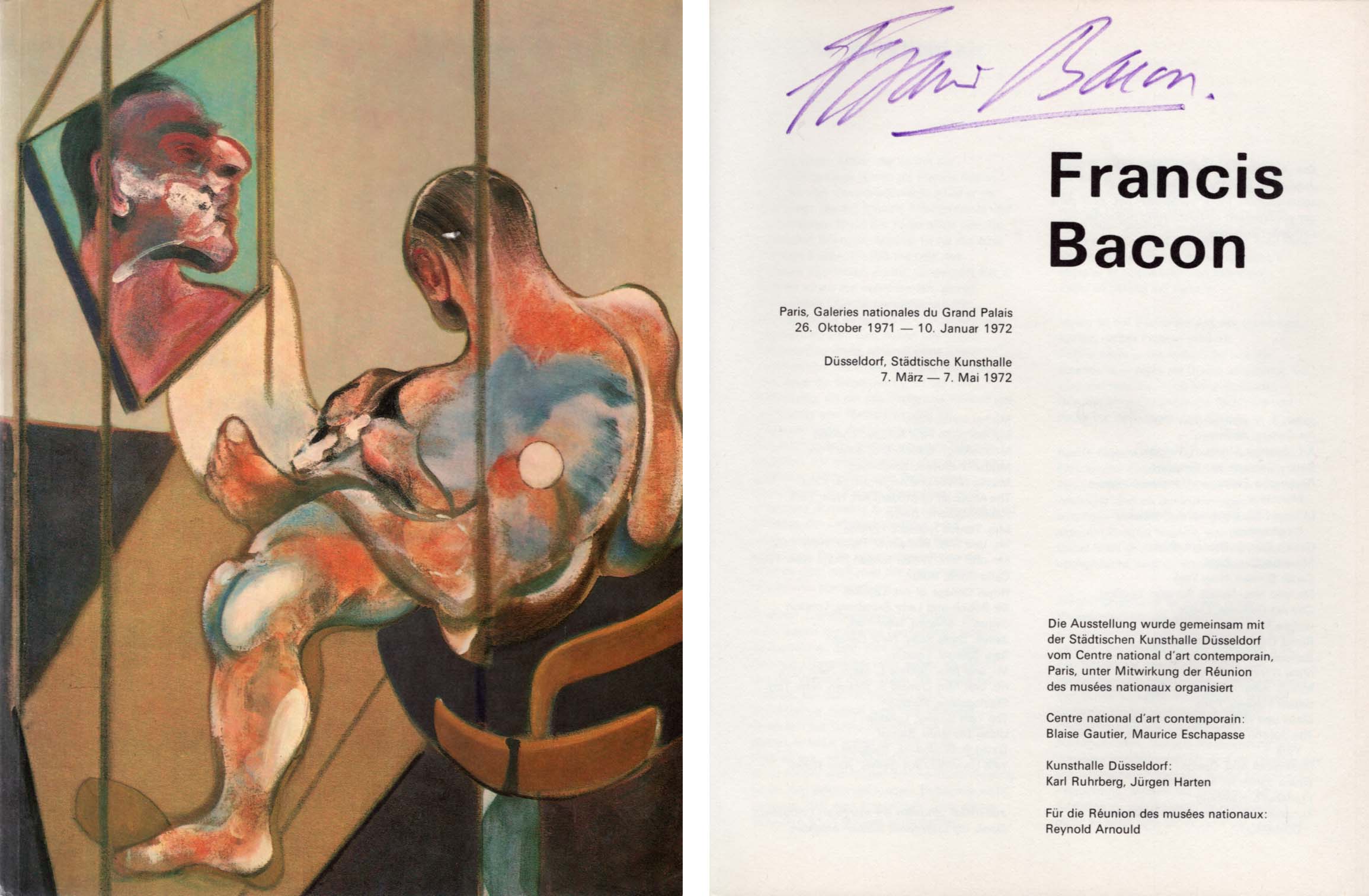Description
Signed book: `Francis Bacon`, on the occasion of two exhibitions: Paris (26.10.1971-10.01.1972) & Düsseldorf (7.03.-7.05.1972), softcover book, 7,75 x 10,25 inch, 139 pages, in German & English, signed on the first page in purple felt tip "Francis Bacon", with mild signs of wear to the cover - in fine to very fine condition.
Further Information on the person
Profession:
(1909-1992) Irish-born British figurative painter known for his bold, grotesque, emotionally charged and raw imagery.
Year of Birth: 1561
Francis Bacon was an English philosopher, statesman, scientist, lawyer, jurist, author, and father of the scientific method. He was born in London on 22 January 1561, into a wealthy and influential aristocratic family. He studied at both Cambridge and Oxford Universities and was admitted to the bar in 1582. Bacon was an exceptionally versatile and influential thinker, writing on a wide range of topics including science, religion, justice, and politics.
Bacon is considered the father of empiricism, and his works established and popularised inductive methodologies for scientific inquiry. His works established and popularised inductive methodologies for scientific inquiry, and he argued for the possibility of scientific knowledge based only upon inductive reasoning and careful observation of events in nature. He advanced the scientific method, and his works greatly influenced the development of science.
Bacon was also a politician and served both as Attorney General and Lord Chancellor of England. As a patron of the arts and sciences, he played a vital role in the establishment of the Royal Society, an academic organisation dedicated to the improvement of natural knowledge. He was knighted in 1603.
Bacon's writings had a profound impact on the development of science. His works Novum Organum, The Advancement of Learning, and The New Atlantis were seminal works in the development of scientific thought. He is credited with developing the scientific method, which is still used today in research and study. Bacon's ideas were also influential in the development of the Enlightenment, which emphasised the importance of empirical evidence and scientific inquiry.
Bacon's influence can also be seen in the field of philosophy, particularly in the fields of epistemology, ethics, and political philosophy. He is credited with introducing the concept of empiricism, which argues that knowledge is derived through experience and observation rather than through faith or tradition. He is also credited with introducing the concept of utilitarianism, which argues that one should act in such a way as to bring about the greatest happiness for the greatest number of people.
Francis Bacon died on 9 April 1626 in Highgate, London, and was buried in St. Michael's Church, St. Albans. He is remembered today as a great thinker, scientist, and statesman, and his works are still studied and discussed by scholars. He is remembered for his contributions to the development of science and philosophy, and for his contributions to the advancement of knowledge.
Certificate of authenticity
All of our pieces are sold with a Certificate of Authenticity. If a piece turns out to be wrong or if you do not like an autograph, you will get your money back for a lifetime.
Payment & Security
Your payment information is processed securely. We do not store credit card details nor have access to your credit card information.


